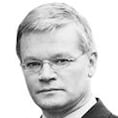With the advent of the internet, many of us thought it would be much easier to know.
Back in the Middle Ages, people were told what to know by the authority of the church. Then in the 15th century, Gutenberg invented the metal stamping printing press. The church soon had to contend for distribution of information with the authority of the state and of authorised publishers. By the 19th century, newspaper publishers became the primary form of dissemination to the populace. This was then augmented, in the 20th century, by radio and television broadcasters.
The emergence of the public internet in the 1990s was the beginning of the democratic diffusion of information. Citizen journalism rose as many started posting personal stories and eyewitness accounts on their home pages. New personalities hitherto not particularly well-known began to collect an online following. Previously disenfranchised voices began to be noticed.
Concurrently, relatively low cost access devices, combined with free browsing, reading, posting and commenting, reached across much of humanity. However in return for free access, the online publishing and dissemination platforms expect that we are prepared to accept advertisements.
Clicks and taps
The primary business model for the internet has been built around “clicks”. When consumers shows interest in an advertisement by clicking it or tapping it on their devices, the advertiser pays the online platform a small amount. Thus to become a material source of revenue, the platform has to generate thousands, if not millions, of such clicks and taps.
Publishers are consequently heavily influenced to draw as much as attention as is absolutely possible to their content. Attention-grabbing content, teasing and enticing material and salaciousness all encourage consumers to further click and tap. If popular content can be rapidly identified, in many cases regardless of what it actually is, then it can be further promoted to multiply up the clicks and taps, and thus yield more revenue income.
Established professional publishers, newspapers and broadcast media were at first enticed by the sheer scale of the global audience accessible via the internet. However, they rapidly became embattled with a tsunami of new competitors, all viciously competing for online eyeballs and clicks. As a result, mass distribution of information and the shaping of public opinion have no longer become the unique realm of relatively elite groups of experts and professionals.
Categorised by software
Public opinion can be shaped to magnify advertising income but also to otherwise influence. Sentiment and writing style can be categorised by software. Opinions supported by a nascent audience can then be reinforced by automatically offering further content with similar sentiment and style.
To drive online attention and advertising income and be noticed, you must stand apart from the crowd. Uncomfortably for many professional journalists and broadcasters, this means taking increasingly extreme and sardonic positions in order to generate sufficient advertising to be financially relevant to your employer.
In the United States, this became possible from 1987 when President Reagan overturned the "Fairness Doctrine". Broadcasters then no longer needed to be fair, honest and equitable in presenting controversial issues to the public. Here, the Broadcasting Authority of Ireland recently clarified its guidelines to assert a principle of fairness but not that all opinions must be necessarily addressed or receive equal attention.
Counterfactual opinions and opinions of every hue wrestle for attention, often regardless of accuracy. All truths become challenged, and many challenges may become perceived truths. Fact and fiction become confused, bluster and speculation match reasoning and can consequently sow confusion.
Prescient
For those wishing to change public opinion, an internal memo in 1969 at a subsidiary of British American Tobacco was prescient: “Doubt is our product, since it is the best means of competing with the ‘body of fact’ that exists in the mind of the general public.” Recommendations of experts, professionals, and experienced journalists that are unhelpful to a campaign can all be drowned by ambiguity and apprehension.
Many technologists now believe that the internet needs urgent amelioration to ensure factually accurate content stands above the ersatz. New internet business models have been proposed and some trialled, to penalise inaccurate material.
Fully automated solutions at the vast scale of the internet may be possible.
Sentiment and writing styles can be analysed by software to mark down dubious content. Machine learning algorithms can be trained to recognise and promote well-crafted opinion and news, above poor quality.
One of the most promising technical approaches is based on logic verification algorithms. Given a body of facts, software can decide whether or not a given piece of content matches or challenges this particular encyclopedia. One can envisage a media organisation or content platform accumulating a large and ever-growing digital resource against which all new content is automatically measured, with non sequiturs identified and brought to human attention.
Authority of a machine
If so many are now suspicious of politicians, experts and professionals, would they be willing instead to believe the authority of a machine? It would presumably depend on whose computer it was, and how its database of truths – its collection of axioms – are collated. No doubt different factions would accumulate different ground truths.
“What is truth?” has long been a philosophical question since Pontius Pilate, and which for centuries the church used to answer with full authority. With the age of the internet, we need to rediscover what is true.















